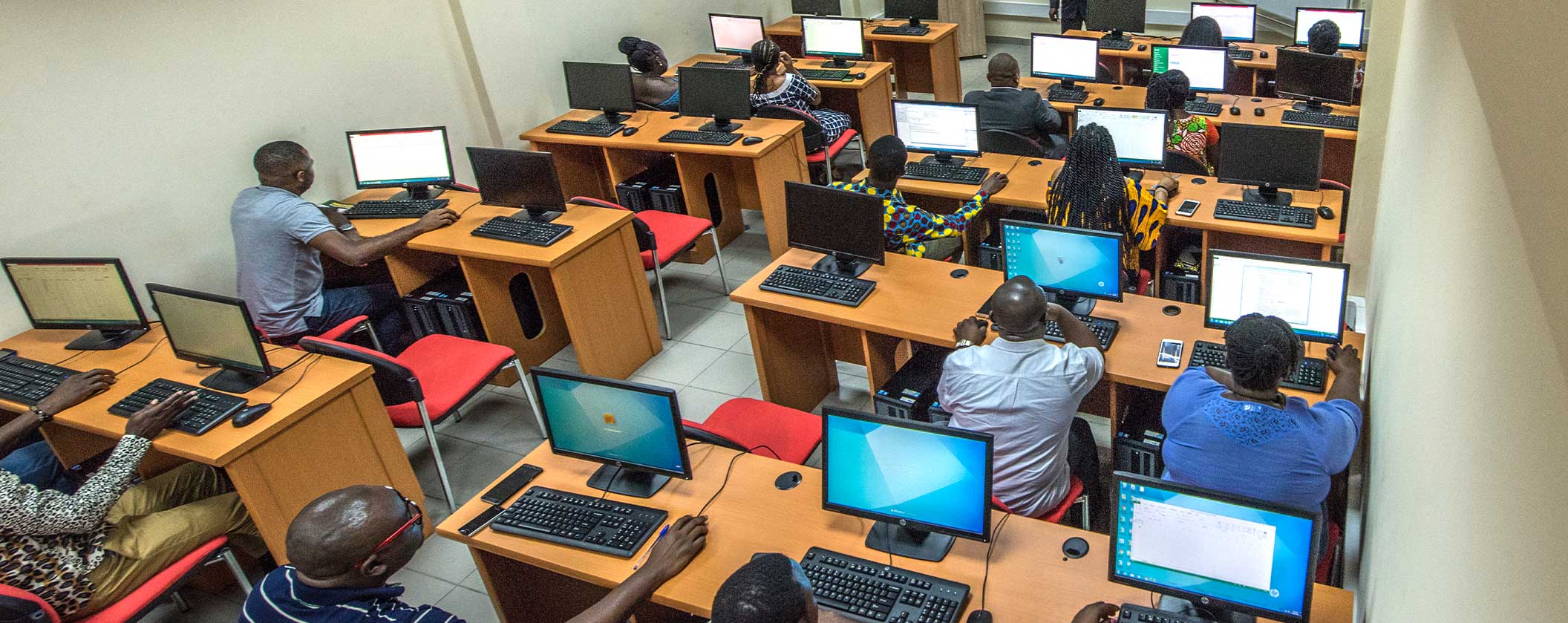Academics
Duration of Program
The program extends over Twelve Month (One year) , consists of two semesters with the first semester starting in August to December. The second semester starts from mid-January to May. A semester is 16 weeks, of which 13 weeks are used for teaching, one week for revision and 2 weeks for examination
Objectives of the MPH program
Across our faculties, we have research teams working on creating solutions, preventing chronic illness, and more sustainable ways of living. The MPH program aims at training highly skilled public health professionals who will be able to identify, analyze and intervene in today's most pressing public health challenges in their immediate communities, and the country at large, and also make impacts on the global scale.
At Ensign Global College, our MPH program develops high-quality and sustainable training strategies to prepare public health leaders with the knowledge and competencies necessary to address challenges at all levels of local and global health care systems.
The competencies to be acquired by all students by the end of the year of the MPH program are shown in the table below.
| 1. Apply epidemiological methods to settings and situations in public health practice | 2. Select quantitative and qualitative data collection methods appropriate for a given public health context |
| 3. Analyze quantitative and qualitative data using biostatistics, informatics, computer-based programming and software, as appropriate | 4. Interpret results of data analysis for public health research, policy or practice |
| 5. Compare the organization, structure and function of health care, public health, and regulatory systems across national and international settings | 6. Discuss the means by which structural bias, social inequities and racism undermine health and create challenges to achieving |
| 7. Assess population needs, assets and capacities that affect communities’ health | 8. Apply awareness of cultural values and practices to the design, implementation, or critique of public health policies or programs |
| 9. Design a population-based policy, program, project or intervention | 10. Explain basic principles and tools of budget and resource management |
| 11. Select methods to evaluate public health programs | 12. Discuss the policy-making process, including the roles of ethics and evidence |
| 13. Propose strategies to identify stakeholders and build coalitions and partnerships for influencing public health outcomes | 14. Advocate for political, social or economic policies and programs that will improve health in diverse populations |
| 15. Evaluate policies for their impact on public health and health equity | 16. Apply leadership and/or management principles to address a relevant issue |
| 17. Apply negotiation and mediation skills to address organizational or community challenges | 18. Select communication strategies for different audiences and sectors |
| 19. Communicate audience-appropriate (i.e., non-academic, non-peer audience) public health content, both in writing and through oral presentation | 20. Describe the importance of cultural competence in communicating public health content |
| 21. Integrate perspectives from other sectors and/or professions to promote and advance population health | 22. Apply a systems’ thinking tool to visually represent a public health issue in a format other than a standard narrative |
| 1. Apply health promotion skills to low resource settings to improve the well-being of communities | 2. Apply entrepreneurial thinking skills and dimensions through public health approach to solving community health problems |
| 3. Apply tools and concepts beyond the traditional public scope to innovatively solve health challenges at the district level | 4. Apply standards of professionalism, principle-based practice and ethics in addressing public health issues through public health practice and research |
| 5. Demonstrate effective community engagement skills for public health practice, including activities that inform, educate and empower targeted audences |
The MPH degree is an accelerated, intensive one-year program designed for highly motivated students and professionals seeking to enhance their career in public health. The MPH exposes students to a range of important issues affecting global public health. Students benefit from research-informed teaching and opportunities to work with key public health professionals through local community-engaged projects.
The curriculum is designed for students to master all of the necessary competencies needed for today’s public health challenges. Students will complete two semesters of coursework followed by three months of designing and leading community-based health projects (Applied Practical Experience – APE) to complete their original thesis work.
Please explore our course descriptions below and review the full degree requirements. Beyond coursework, students will engage in hands-on public health learning experiences that have an immediate impact. Learn more about the Applied Practice Experience for a comprehensive understanding of the program.

Students will complete the following courses:
| First Semester (September - December) | Second Semester (February - June) | (July - September) |
|---|---|---|
| Introduction to Public Health | Communicable and Non-Communicable Disease Control |
Applied Practical Experience and Thesis |
| Epidemiology | Public Health Program Planning and Evaluation | |
| Biostatistics | Family and Reproductive Health | |
| Foundations of Health Promotion | Environmental and Occupational Health | |
| Research Design and Methodology | Elective 1 | |
| Health Policy, Management, and Leadership | Elective 2 |
